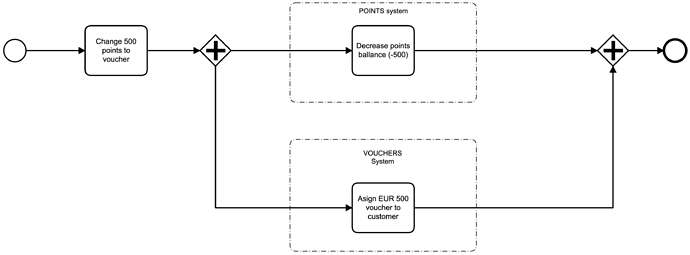Hello, I have an interesting problem to solve. Imagine a large chain store system where a customer receives a certain number of points for each purchase, corresponding to the amount spent. At any time, he can exchange the points he has collected for vouchers of the corresponding value, which he can then use as payment at the checkout. Let’s now focus on the part of the process where we need to reduce points in one system and allocate a voucher in another at the same time. This is so that both transactions will take place if everything is error free but that both transactions will be cancelled if an error occurs in one of the operations. This means that if we deduct points then if the second transaction fails and the voucher is not allocated the deduction of points is cancelled. So far I have no idea how to do this using the BPMN process on two independent systems: the VUCHER system and POINTS system.
Thank you very much for any help
pgwc.bpmn (5.9 KB)
